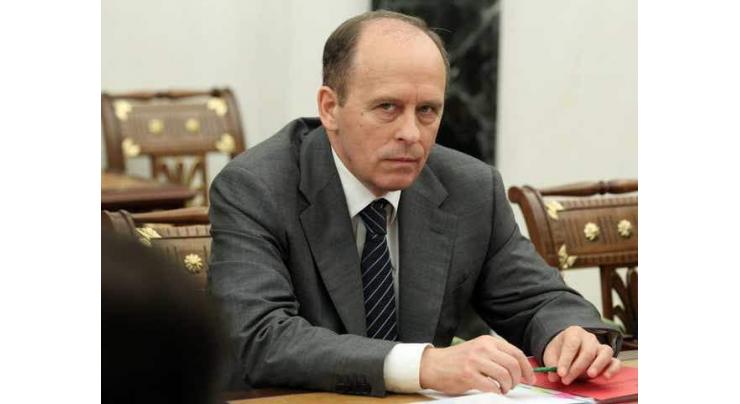
EU Sanctions To Target FSB Chief Bortnikov, Other Senior Russian Officials - Reports
Faizan Hashmi Published October 14, 2020 | 08:40 PM

The European Union is readying to sanction senior Russian officials, including Federal Security Service chief Aleksandr Bortnikov and first deputy chief of staff in the presidential administration Sergei Kiriyenko, over the alleged poisoning of opposition activist Alexey Navalny, the New York Times reported on Wednesday
WASHINGTON (UrduPoint News / Sputnik - 14th October, 2020) The European Union is readying to sanction senior Russian officials, including Federal Security Service chief Aleksandr Bortnikov and first deputy chief of staff in the presidential administration Sergei Kiriyenko, over the alleged poisoning of opposition activist Alexey Navalny, the New York Times reported on Wednesday.
The Russian authorities have denied any wrongdoing regarding Navalny and threatened to respond in kind to the potential EU sanctions, which are expected to target one organization and six individuals with asset freezes and travel bans.
"Several of those facing penalties are members of the tight circle of elites who for years have surrounded the Russian president, Vladimir V. Putin: Aleksandr Bortnikov, the head of Russia's domestic spy agency, the Federal Security Service; Sergei Kiriyenko, first deputy chief of staff in the presidential administration; and Andrei Yarin, the head of the presidential administration's domestic policy directorate," the report said citing senior European Union officials.
Others targeted officials include two deputy defense ministers Aleksei Krivoruchko and Pavel Popov and the Russian President's envoy to the Siberian Federal District Sergei Menyaylo.
The European Union is also expected to impose sanctions on the Russian State Research Institute of Organic Chemistry and Technology, which is suspected by Western intelligence services of developing the Novichok nerve agent allegedly used to poison Navalny.
Navalny was transported to Germany after he fell ill on a flight from the Siberian city of Tomsk to Moscow in late August. Following his arrival in Berlin, the German government alleged that traces of a nerve agent from the Novichok group had been found in his system.
Russian doctors who treated Navalny in the city of Omsk have said that no poisonous substances were detected when they undertook tests.
Related Topics
Recent Stories

Law Minister expresses Govt's resolve to address issue of missing persons

Rizwan’s batting order may be changed: Sources

Nawaz Sharif to visit Guangzhou exhibition in China

FM Dar not traveling to China: Foreign Office

PM takes notice of deliberate delay in tax cases

Iranian President visits Allama Iqbal’s mausoleum

Iranian President arrives in Lahore today

Currency Rate In Pakistan - Dollar, Euro, Pound, Riyal Rates On 23 April 2024

Today Gold Rate in Pakistan 23 April 2024

Islam enlightened world with its teachings about knowledge: Dr Jamileh

Record London close as oil prices drop on easing Middle East fears

TV tower in Kharkiv struck as Russia captured village
More Stories From World
-
16 dead, 28 missing in migrant boat capsize off Djibouti: UN
3 minutes ago -
How UK's biggest water supplier sank into crisis
3 minutes ago -
EU lawmakers greenlight new rules to rein in national spending
43 minutes ago -
Hamas to stay in Doha if 'useful' for Gaza war mediation: Qatar
1 hour ago -
London stock market strikes record as sentiment lifts globally
1 hour ago -
In Brazil, hopes to use AI to save wildlife from roadkill fate
2 hours ago
-
Taiwan hit by dozens of strong aftershocks from deadly quake
2 hours ago -
Ambassador Hashmi visits Linyi city in Shandong province
3 hours ago -
Norway women bring seaweed to culinary heights in Europe
3 hours ago -
Ukrainian agriculture minister suspected in corruption scandal
3 hours ago -
China issues highest-level rainstorm warning after deadly floods
3 hours ago -
London stock market hits record high
3 hours ago